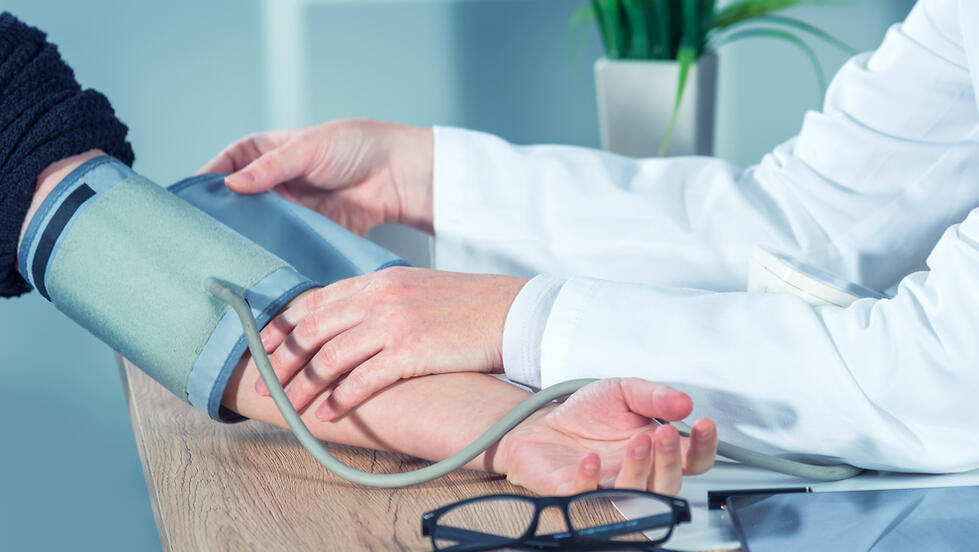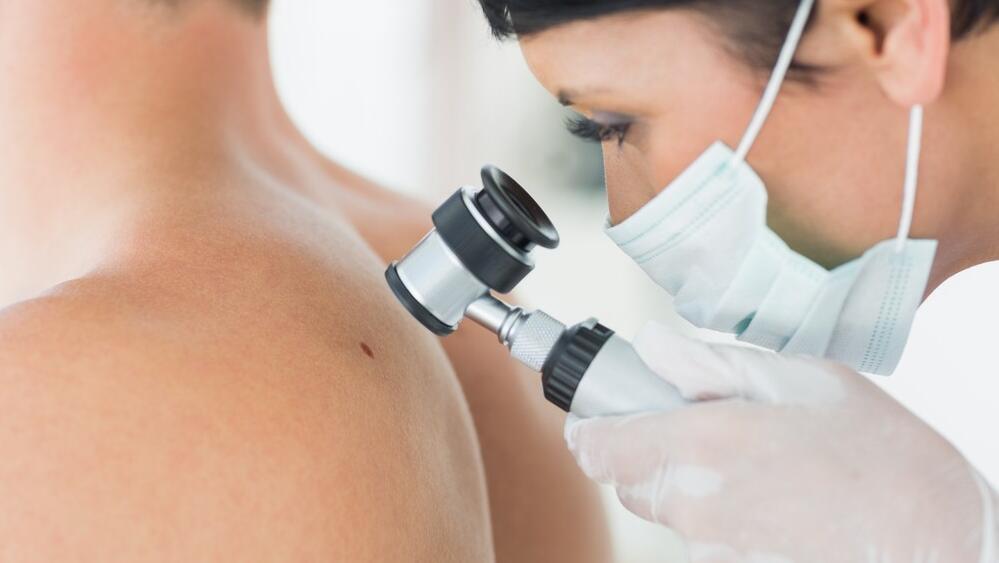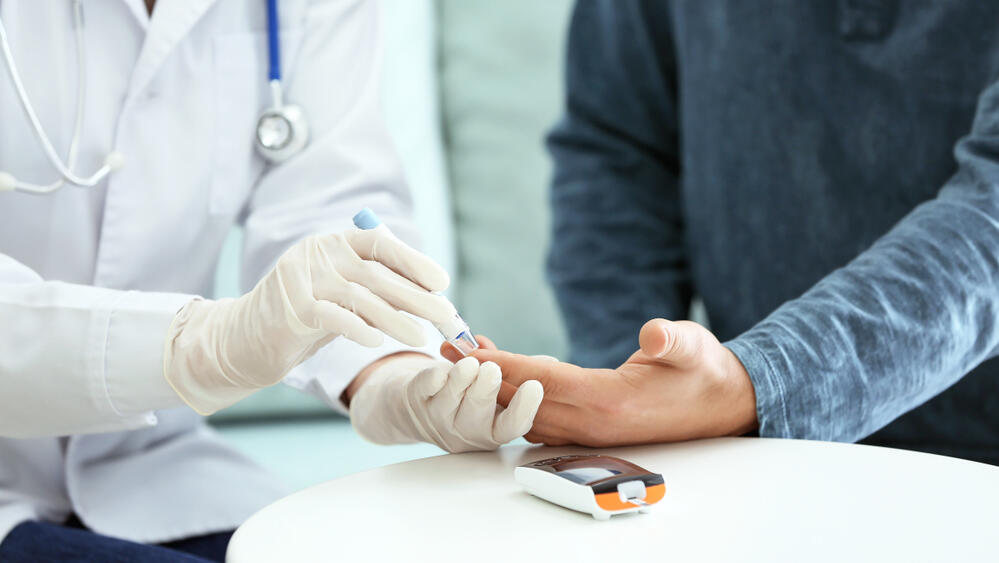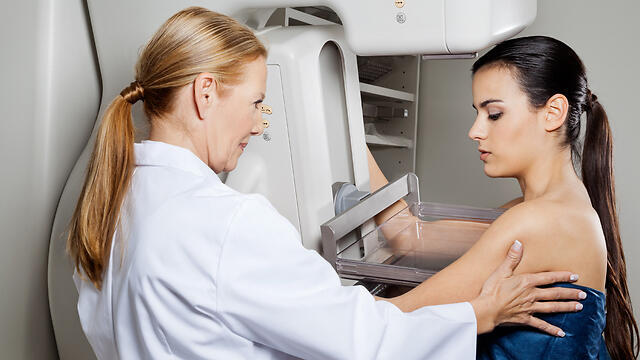Health organizations around the world often urge people to undergo periodic check-ups to detect medical issues and diseases early that can save and extend our lives.
Other stories:
This emphasis has proven itself: Life expectancy in the Western world in countries where periodic medical check-ups are performed is higher compared to countries that fail to monitor health consistently.
In Israel, as in other Western countries, periodic medical tests are common practice. In recent years, the Health Ministry has introduced a new system for doctors and physicians in the Israeli health system to better conduct this testing.
The new system alerts general physicians and pediatricians and requires them to remind their patients to undergo periodic check-ups. These check-ups can present signs of the early onset of a disease, and help with further medical monitoring if needed.
A blood pressure test remains one of the most important tests performed by general physicians. In recent years, however, it has been found that in many cases blood pressure increases significantly during the test due to anxiety or nervousness, in what’s known as "White Coat Syndrome."
In other cases, the blood pressure measured at the clinic could be normal, while the true values change while the patient is at home, leading to unreliable readings.
New recommendations suggest performing multiple blood pressure tests in a relaxed state, after resting for at least five minutes - preferably at home, with the arm resting on a table at chest height.
It’s important to understand that blood pressure also increases in stressful situations, pain or high fever, so a single test doesn’t necessarily indicate high blood pressure.
Not all tests are created equal
The recommended tests include those that are known as necessary for a healthy population. For example, lung cancer can be diagnosed by a chest X-ray or CT scan. The U.S. Department of Health, however, has concluded that routine X-ray tests are unnecessary, since no data has indicated a lesser mortality rate among those who underwent them.
Colonoscopy tests aren’t included in the health basket, but the Health Ministry has allowed gastroenterologists to approve a colonoscopy for anyone who requests one. In most cases, the test will be approved after a referral from a general physician.
Still, some doctors don’t believe that all routine tests are necessary for all patients. For example, doctors are divided on the accuracy of the blood test for detecting the PSA marker, which is used for early diagnosis of prostate cancer, because in some cases the test wrongfully comes back positive, and because it can be affected by other factors.
In other cases, the test doesn’t indicate the presence of prostate cancer, because the tumor itself does not cause high levels of the PSA protein. Therefore, the need for early PSA testing is still controversial, but many urologists tend to recommend it above the age of 45.
The need for routine ECG testing for healthy individuals, who didn’t complain about any issue related to possible heart or blood vessel conditions, is also contested.
Though the test, which is considered fast and inexpensive, can detect changes in heart rate and heart muscle structure, it hasn’t been proven to reduce diseases or mortality as a routine test. Nevertheless, it’s recommended to perform an ECG at least once by the age of 40, and annually after that age.
The following are the main periodic medical tests required at every age. The data is based on recommendations from the Health Ministry, the Israel Cancer Association, the U.S. Department of Health and Human Services, the U.S. Centers for Disease Control and Prevention, and various experts' recommendations.
This list is, of course, general advice that refers to healthy individuals. Note that this list is fundamental and not a directive; always consult with your doctor regarding what tests are appropriate for you.
From the age of 18:
Resting blood pressure test: Once every two years.
ECG: At least once before the age of 40. However, the recommendation is not uniform among the different health organizations, and there is still no agreed-upon guideline regarding the need for the test and its frequency.
Glucose tolerance test: To detect latent diabetes, once every five years for those at high risk.
Penile and testicular tests: Done individually by the patient in the shower once a month.
Skin moles: It is recommended to be examined by a dermatologist once a year to detect new moles that could arouse suspicion of a skin condition. If the mole includes one of these signs – unclear and undefined borders; red, blue or black coloring; bleeding; itching; or an asymmetric shape, the doctor will recommend a biopsy in which the suspicious mole will be removed and examined under a microscope. People with light-colored skin, those who had a previous suspicious mole, and those with a family history of skin cancer will require a closer follow-up.
HIV: At any age after unprotected sexual contact, exposure to unknown body fluids, or non-sterile needle puncture.
For athletes: An ergometry test (ECG while exercising) at the ages of 17, 23, 27, 32 and 34 - once every two years. Starting at 35, the test is performed annually. If suspicious changes are observed, the patient will be referred to a cardiologist for observation and further testing.
From the age of 25:
Pap smear: A test to diagnose early cervical cancer in women, from the age of 25 and every three years thereafter. In addition, it is important to receive a vaccine to prevent cervical cancer and HPV.
From the age of 40:
Resting blood pressure test: At least once every two years.
ECG: At least once a year. There is still no absolute agreement on the need for the test and its frequency.
Blood work: At least once every five years from the age of 35, including liver function, lipid profile and cholesterol. For smokers, diabetics or people with a family history of heart disease, testing should begin at age 20.
Thyroid gland: A TSH test once every five years.
Diabetes: Fasting blood sugar level test every three years, HbA1C test (a measure of average blood sugar levels over the past three months) for those at risk, and a sugar tolerance test following pregnancy for women who suffered from diabetes while pregnant.
Rectal exam: The test is used for early diagnosis of colon and rectal cancer and is done annually.
Prostate gland: The PSA test should be done once a year starting at age 40 for Black men, and at age 50 for Ashkenazi Jewish men. After age 75, most healthy men can stop the test.
Intraocular pressure: Glaucoma is a disease that usually affects older people, which damages the optic nerve and is characterized in most cases by an increase in intraocular pressure. About 10% of the population over 40 years old suffer from glaucoma, which also can affect younger people. Eye doctors recommend that people age 40 and over should have their intraocular pressure checked at least once every two years by an ophthalmologist. If you’re younger and suffer from blurred vision, eye pressure or headaches, you should have an eye exam.
Mammography: Women at increased risk should be tested from age 40 and once a year or according to a doctor's recommendation. Women with a genetic mutation or a high family risk are entitled to a breast MRI from age 30 to 70, and an annual examination by a surgeon.
From the age of 50:
Fecal occult blood test: To detect early signs of colon cancer; it’s recommended to undergo a test once a year from age 50 to 74. Additionally, a colonoscopy is recommended once every 10 years. Although this test is not included in Israel's health basket, approval can be obtained through a gastroenterologist.
Resting blood pressure test: At least annually.
Diabetes test: Every five years. People who suffer from high blood pressure, high cholesterol, weight issues, or have a family history of diabetes or metabolic condition should undergo the test more frequently.
Eye pressure test: To detect glaucoma, once every two years at least.
Abdomen test: To detect an enlarged liver or spleen, once every five years. More frequent testing is recommended to detect enlargement of abdominal organs and to detect an arterial aneurysm in male smokers over 50.
Legs: Ankle-brachial index testing to detect blood flow conditions once a year.
Mammography: Healthy women should undergo the test once every two years from age 50 to 74.
From the age of 60:
Bone density test: To diagnose osteoporosis. The first test should be done at age 60 and then every five years. Women over 50 and at risk should undergo the test every two years. If low bone density is detected, the frequency of testing should be higher.
Abdominal ultrasound test: To detect an abdominal aortic aneurysm, which is the largest artery in the human body. This is a life-threatening condition that can lead to death within minutes. The test is recommended for those over 65 who smoke or have smoked in the past.







